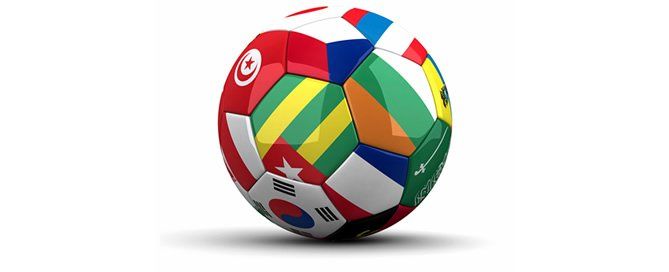What Does the World Cup Teach Us About Product Development?
With all eyes on the World Cup action in South Africa during the past two weeks, it seemed timely to reflect on what product teams can learn from international soccer. Four quick thoughts:
1 - Total football. The dominant theory of play at this level is known as "total football," an approach that depends on teamwork and on-field adjustments made by the players in real time. For example, a defensive player can move to an offensive position if the situation merits with the offensive player backfilling on defense; "switching the field" is not limited to the play, it can also mean that the left and right defenders, mid-fielders or forwards can switch according to the flow of the game. While critics might refer to it as "total chaos," total football has displaced conventional wisdom about the tightly regimented approaches and the creative, superstar-centric styles that have worked in the past. In this observation we see a correlation with product development teams, where we see a need for teamwork, constant communications and flexibility about roles and the project plan. The ability to make real-time adjustments depends on a team that has experience working together, is collaborative by nature, and is sufficiently in sync so that decisions can be made without waiting for the next meeting.
2 - Sh#t happens. Random, unpredictable events (bad calls, unusual bounces, food poisoning) happen and can have out-sized impact on the results of a game. These random incidents can work for you (see US goal vs. England), or against you (see US disallowed goal vs Slovenia), but you have to play on. The fact that you can't control everything about the result does not mean you don't need a plan. Come into the game with a strategy and a plan, but be ready with alternatives as reality kicks in. As we often say, "the one thing you know about the product plan is that it's wrong" because plans are not predictions, they are just a current assessment based on your most recent assumptions. Successful product teams are able to update their assumptions and rapidly change their plans as sh#t happens. They also know how to identify that they made the change and why it contributed to achieving the objective. Successful management is tolerant of these updates, and is not married to forecasts based on outdated assumptions.
3 - Past success is no indicator of future results (see France and Italy, 2010 editions). Just because you or your company were successful with your last product does not give you reason to be confident about your next initiative. Hubris really is a deadly sin - in World Cup soccer and in product development. Your competitors saw your success and have made adjustments, and if you're not prepared to put in the same level of effort as last time, there is no reason to expect the same results. In fact, repeat success may be the least likely outcome.
4 - You can only field one team. It doesn't matter how large the country is, you can only have 11 players on the field at one time and your bench cannot be infinite. This is the great equalizer that allows smaller countries to compete with larger ones (see Serbia vs Germany). Your country may have 100 great players but you can only field a single team with 11 players. Great results come from great teams. A larger pool of players to choose from may be an advantage, but the real constraint is the strength of your team, including your bench. Product developers often believe that their critical constraints are total resources, or number of great ideas. Reality (and soccer) tells us that the true constraint is the number of great teams you can field. Great products come from great teams. If you only have one great team - it doesn't matter how many great ideas you generate. And total headcount doesn't matter either if they cannot be configured into complete competent teams.
And so, we recommend the World Cup as much for sports entertainment as for product development insights. We hope you are looking forward to round 2 of this fascinating global event as much as we are, especially now that we've become immune to those annoying vuvuzelas (the background noise of this year's tournament)!









